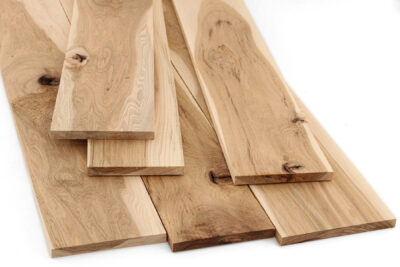
By Richard Lipman
Guest Writer
Upper Grades Hold Steady While Uncertainty Looms With Expected Tariffs
The threat of tariffs dominated people’s attention the past couple of weeks. On the Pine side, one Ontario producer indicated, “I think turmoil is probably an understatement, the possible tariff action certainly stirred things up on February 3rd. I think it has settled down a little bit now. I wasn’t initially aware that Canada imposed a 25 percent tariff on imported softwood from the U.S. It was a surprise when I learned that. I’m glad that they did that because with the countervailing duty and the possible tariffs on Canadian softwood, it is good for us to stand up for ourselves.”
A Quebec producer noted, “On pricing, the upper grades are still holding okay. The demand for select is pretty good. It’s kind of unusual, but it is pretty good. The Pine log supply is okay, everything’s fine on that front and transportation is much easier to get and certainly a lot more competitive.”
A Quebec wholesaler reported, “The No. 1 Common is in high demand, Nos. 1 and 2 Common have everybody kind of all over the map on price, which generally happens when things slow down. The lower grades are still tough to move, only because demand is down. It’s not a question of price, although there are people that are dropping prices to try to move it.” An Ontario producer said, “The Pine business is pretty slow. It’s not terrible, but it’s slow. The green Pine is going to start rolling in a couple weeks, but we’re not taking in as much as we normally would, just because it’s been pretty slow. Hopefully that picks up in a couple months. If you can move the low end, you’re in good shape. Some have moved volumes of low grade offshore, but the prices are not strong there. They might rather not do that, but it’s always an option. It’s been a challenge to move the lower end, which has been a trend for a good nine months, almost a year now. It tells you that manufacturing has slowed down overall.”
An Ontario producer said, “Some of the distribution centers that we deal with do bring in U.S. White Pine for some of their retail accounts. The retailers apparently were calling wholesalers, just frantic, when they heard about proposed Canadian tariffs. We have to pay 25 percent more, so they are going have to pay 25 percent more. Overall, it created quite a bit of panic on Monday. This might be putting mills in a good position right now to talk to their wholesalers, then in turn talk to the retailers. For anybody relying on U.S. wood, perhaps they should lock in on some Canadian wood right now, just in case the tariffs do happen, because it’s only a 30-day reprieve. That’s certainly good for anybody in Canada. Why wouldn’t you support Canadian product? While the sting is fresh, there’s a pretty strong sentiment out there for buying Canadian.”
On the Spruce-Pine-Fir front, noted one Quebec wholesaler, “The tariff situation has created an environment of great uncertainty, and unfortunately, it’s going to affect all of our businesses because we need stability. I don’t see that stability anywhere at this point in time. Even before this episode, our economy was slowly starting to recover from COVID and any inflation that it brought. We were hoping for a better recovery this year, but that’s all being put on hold right now and that’s not good for any of us. We brought our interest rates down to 3 percent and were making sure that our interest rates were helping to decrease inflation. You can understand this has obviously got the politicians alarmed. We saw our cabinet ministers out front indicating the province felt the new duties were unjustifiable. They mentioned more than 180 companies will be affected. We are seeing support options for companies being actively considered by the provincial governments, both here in Quebec and in Ontario. They want to protect their companies and their people. Let’s not pretend that our forest sector was not already impacted by the U.S. duties before the proposed 25 percent tariffs. This will not just hit one region of our province. People were hopeful that there was a chance for a deal, even if short-lived, but a more permanent one might also be possible, hopefully in the near future.”
The Ontario Forest Industries Association expressed deep concern over the February 1st, announcement seeking to impose a 25 percent on most Canadian goods. Ontario lumber producers could face a 60 percent tariff at the border this year, effectively wiping out shipments to the U.S. They noted the Ontario forest sector operates under a fair, sustainable and transparent system and these punitive measures do nothing but harm businesses and consumers on both sides of the border.
An Ontario producer stated, “It’s been a wild week in the lumber industry, that’s for sure. February 3rd was insane. I started getting calls at 7:00 AM and literally didn’t stop. When the news about the deal with Mexico got out, people sort of calmed down, thinking maybe Canada could get a similar deal, which ultimately happened. But it was pretty intense there for a while. Lots of chaos for nothing really. Now there’s some uncertainty. You have some Canadian companies selling some U.S. lumber to firms that are stocking up right now, because they don’t want to be caught short in 30 days. We’ve also had some calls from distributors – who say their customers want to buy Canadian lumber, which is also nice to hear.”
An Ontario supplier reported, “Things are tumultuous and it hasn’t ended, it’s just being postponed. The chaos is probably going to return, the closer we get to the next artificial date that’s been set. I think it’s going to have an effect in terms of people’s buying habits. On imported products, immediately we would’ve been hit with a 25 percent tariff, increasing the price substantially. We don’t have that kind of profit in it when we’re selling materials to builders. We’re probably in the process now of adjusting our buying habits. We’re not going to cancel the deals that we have with U.S. suppliers. We’re probably going to beef up the purchases a little bit, just so that we can assure that we get that product across the border in case there is another tariff put on. But it’s been hugely destructive and it’s been an attack on people’s emotional, psychological state. The customers don’t have 25 percent, so that’s not only going hurt the Canadian producers. It’s going to hit the American companies themselves, and it’s going to hit the U.S. consumer who’s now going to end up seeing their prices rise substantially, higher prices for homes, impacts on business and employees etc.”
One Ontario distributor noted, “We had a carload of U.S. lumber in transit, and would’ve been charged thousands. Now with this one-month reprieve, we’re going to bring it in. We have built great relationships with U.S. firms and have dealt with some traders for decades. But companies will think twice before they will be buying in the United States. There’s no certainty, and understanding how business operates, the one thing that business really hates more than anything, is uncertainty.”
A Quebec manufacturer expressed, “I don’t have much of a prediction of good things happening in the near future. It’s just too unstable. This will cause companies to really start to look at other marketplaces around the world. Don’t sell all your products to one account, it makes you vulnerable. This has been a wake-up call.” A Quebec wholesaler said, “Aside from the politics and tariffs, my biggest concern is housing starts. Even though the feds are dropping their rates, it’s not enough stimulus to get things going. People can’t afford housing. So, what’s going to happen down the road here to make it feasible for a young family to start out? Even in all the confusion, labor is still a concern for us. The big concern we have today is you can’t get anyone to work.”









